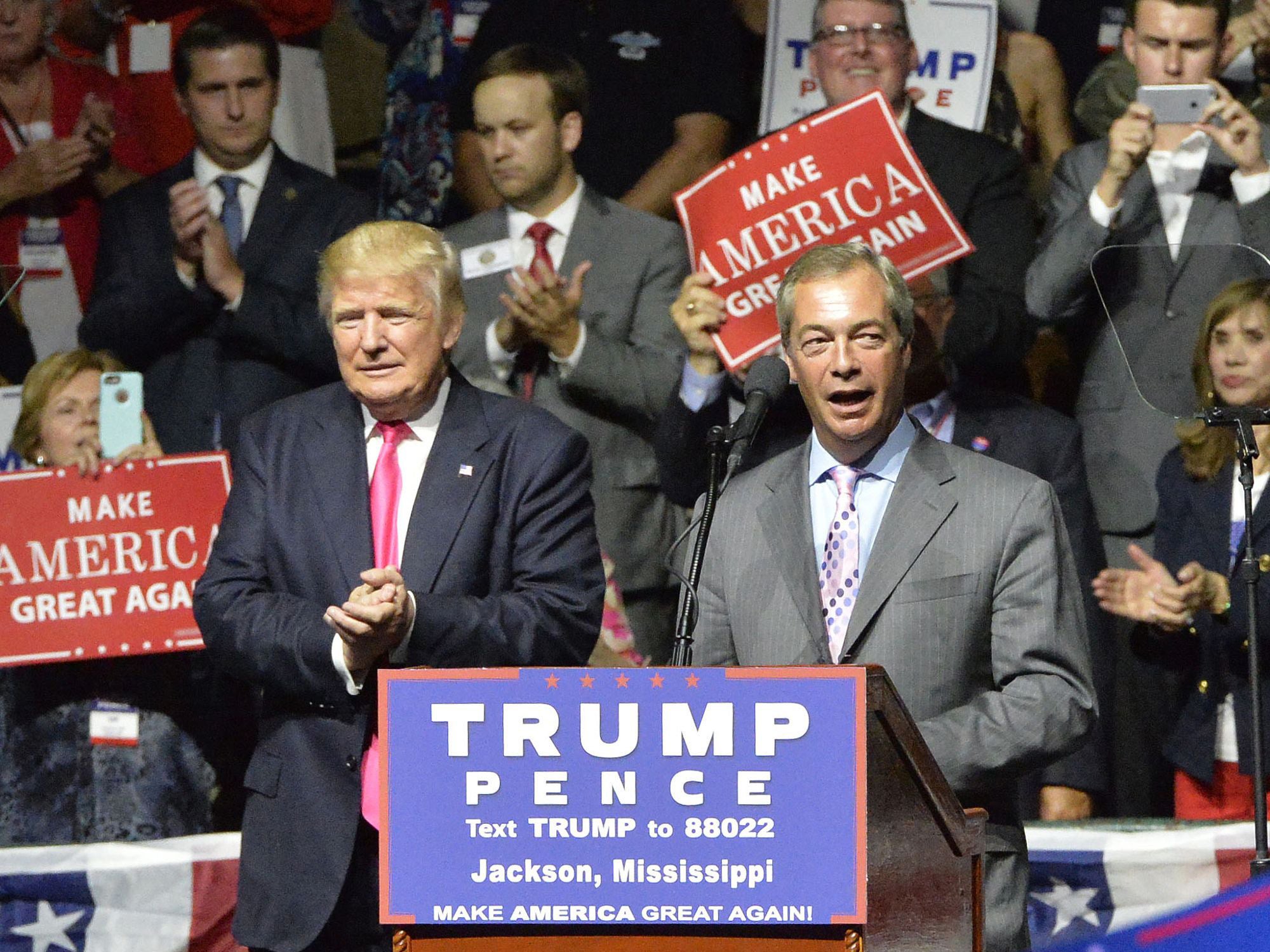Donald Trump and Nigel Farage are two rich white men who overturned 'the elite' and made themselves elite instead
The Government has made clear that Nigel Farage will not become ambassador to the US, of course. But oligarchy pays little heed to diplomatic niceties, as Donald Trump has demonstrated by placing family members in key positions in his transition team

Nigel Farage has spent his political career playing the role of the outsider, railing against amorphous elites and a full range of establishment targets. Ever since leaving the tribal world of stockbroking, he has endeavoured to present himself as a man of the people, the antidote to a failed political class. At each turn, he has damned the status quo, called out real or imagined cronyism and argued for a new politics.
It has been a hammy play of several acts, by degrees both comedy and tragedy. Now, however, the performer is showing truer colours. For one thing, it has become clear – if ever it was in doubt – that not only is Ukip simply a cult of personality, but that Mr Farage thrives on it. He has twice resigned as the party’s leader, and yet he has twice been drawn back, with hardly a kick or scream in evidence.
Ukip, however, may no longer be able to deliver what Mr Farage appears to desire more than he might care to admit: influence and power. Ironically, being a member of the European Parliament gave him a position of authority and a stage for his views. Having helped to push Britain towards the EU exit, the platform he had will soon be lost. Farage has failed once to win election to Westminster and, assuming he stands aside as Ukip leader for a third time once a replacement has been determined, there will not be another opportunity.
Instead, Mr Farage is becoming reliant on precisely the kind of establishment cronyism he has spent a lifetime berating. He claims not to want a peerage – “at the moment”. But the Prime Minister set tongues wagging last week when she declined to deny that the possibility had been discussed. In the context of Mr Farage’s brazen offer to act as a go-between for the Government in its dealings with Donald Trump, a peerage could give such a role the veneer of respectability.
But perhaps a veneer is unnecessary when you have friends in such high places as Mr Farage now does, following Mr Trump’s election as the next American President. With all the diplomatic grace of a half-chewed Ferrero Rocher, Mr Trump merrily suggested on Twitter that Mr Farage – the first foreign politician to visit, and gurn alongside, him in the aftermath of his victory – would make an excellent British ambassador to Washington.
The Government has made clear that there is no vacancy, of course. Mr Trump presumably knew that when he made the suggestion, as did Mr Farage when he said the idea had come as a “bolt from the blue” but that “if I could help the UK in any way, I would”. But oligarchy pays little heed to diplomatic niceties, as Mr Trump has demonstrated by placing family members in key positions in his transition team. And Mr Farage knows which side of the Atlantic his bread is buttered on.
These two men, scourges of the status quo, have frequently relied on references to past greatness to inspire their supporters. They have each tapped into narratives that display deep antipathy towards the realities of the modern age. What is becoming increasingly clear is that among their targets are not only globalisation and progressive liberalism, but even the most central assumptions about how democratic government operates. Both have questioned the validity of the electoral systems in their respective countries; and neither sees any reason why they should not play out their peculiar courting in the full glare of social media – one aspect of the modern world that suits them rather well.
Donald Trump and Nigel Farage are two rich white men who have promised to make things great again. In a grand vision for a better future, these anti-establishment underdogs have rejected the status quo and cast aside ruling elites in favour of a better way – one in which prerogative and patronage are paramount, and in which truth, merit, criticism and – yes – outsiders – have no role to play.

Join our commenting forum
Join thought-provoking conversations, follow other Independent readers and see their replies